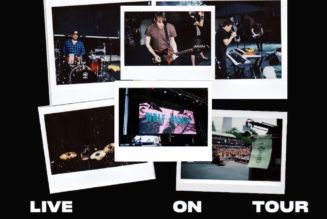
On Monday, U.S. District Judge Amy Totenberg granted summary judgment in favor of the RIAA on the issue of liability and rejected Spinrilla’s DMCA Safe Harbor defense.
Totenberg notes that the 11th Circuit hasn’t yet considered whether direct copyright infringement must be willful, but finds “even if volitional conduct is required to prove direct infringement, the cases on which Plaintiffs rely have all held that the affirmative act of streaming constitutes direct infringement of the copyright holder’s exclusive right of performance regardless of the fact that the streaming occurs at the request of the user.”
She continues, “Defendants have created an interactive internet player that streams copyrighted content directly from its website and mobile app. In doing so, Defendants have infringed Plaintiffs’ exclusive right ‘to perform’ their copyrighted sound recordings ‘publicly by means of a digital audio transmission.’ Therefore, Plaintiffs are entitled to summary judgment on their claim of direct infringement of the 4,082 works in suit.”
While the DMCA limits liability for online service providers in connection with claims of copyright infringement, Totenberg found Spinrilla doesn’t meet the criteria for such protection. The site didn’t have the requisite repeat infringer policy or a designated agent to handle DMCA-related claims until after the complaint was filed, so it can’t rely on the safe harbor for protection from the infringements at issue here.
“We are gratified by the court’s decision, which sends a message that online streaming providers cannot hide behind the actions of their users to avoid their own liability for copyright infringement that occurs through their systems,” RIAA Chief Legal Officer Kenneth L. Doroshow said in a Tuesday statement. “The decision also reaffirms that merely characterizing unauthorized copies of sound recordings as ‘mixtapes’ does not make them any less infringing than any other unauthorized uses of copyrighted works. The court got it exactly right on several key points of copyright law in the digital streaming context, and we hope that it serves as a lodestar for other courts and service providers alike.”
RIAA’s outside counsel Andy Bart of Jenner & Block also sent The Hollywood Reporter a statement: “Judge Totenberg’s ruling is a significant victory for the music industry that sends a clear and strong message in upholding the rights of artists and copyright owners in today’s digital streaming market.”
Now that liability has been decided, the issue of damages could proceed to trial, but Totenberg indicated mediation may be a better option. The parties have until December 16 to decide which route they prefer.
Read the full decision at THR.com.









